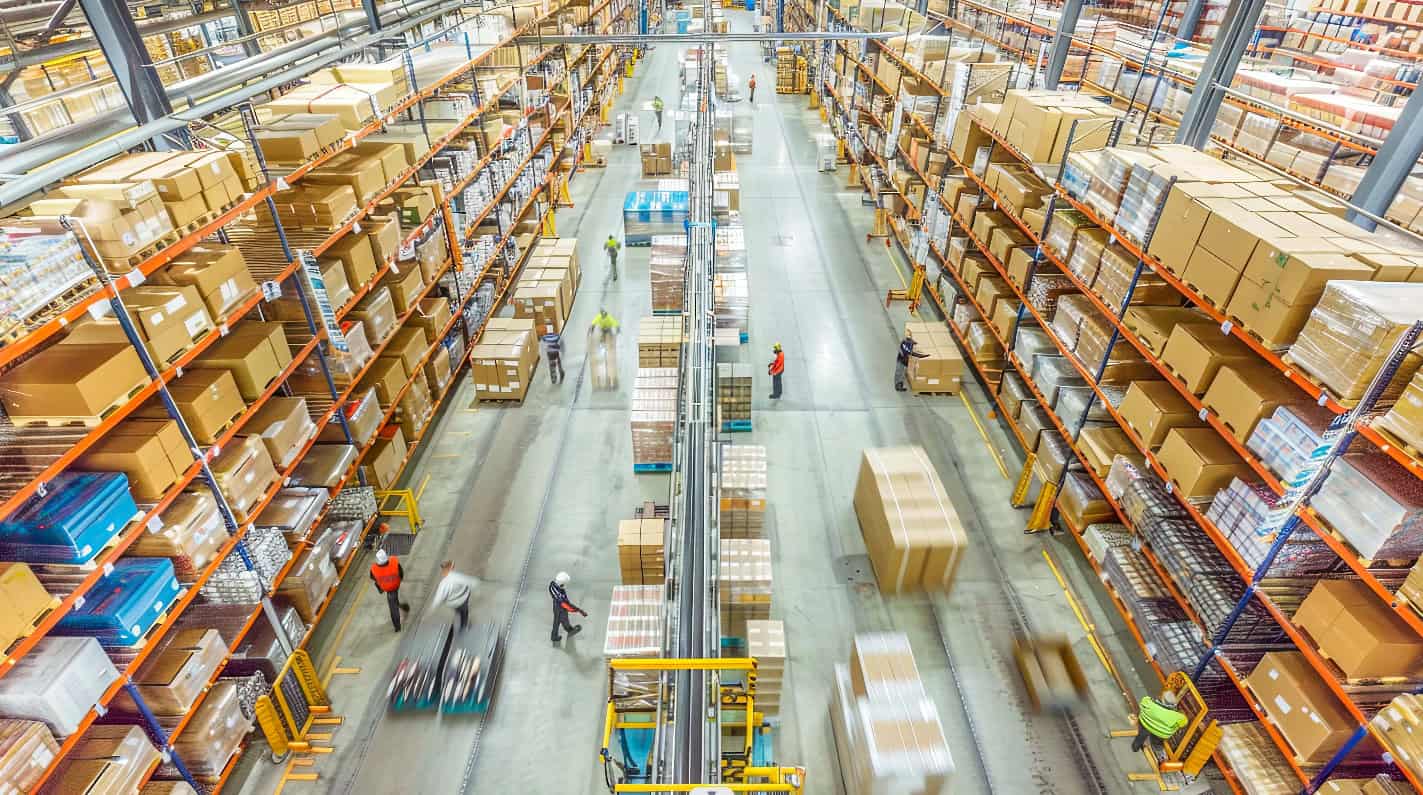RFID tags, commonly referred to as smart labels, are transforming how assets and inventory are managed across sectors such as retail, logistics, manufacturing, and healthcare. In 2022, the RFID tags market reached a value of US$ 12,345.2 million, and projections indicate an expected increase to US$ 31,803.3 million by the end of 2033. The estimated value for RFID tags in 2023 is US$ 13,271.1 million, with an anticipated Compound Annual Growth Rate (CAGR) of 9.1% from 2023 to 2033.
Have you ever wondered about the inner workings of RFID software solutions? RFID labels play a crucial role in ensuring the seamless operation of these solutions, enhancing efficiency and overall functionality. These specialized labels incorporate a computer chip and a tiny antenna that communicates with other devices using radio waves. When placed in proximity to a dedicated reader device, the radio waves from the reader activate the chip in the label, enabling it to transmit information back to the reader. This information can include details such as the product name, price, or even the item’s location, making it an incredibly efficient method for inventory management and supply chain optimization.
RFID labels facilitate wireless communication, providing businesses and other industries with convenient information transmission, proving invaluable across various scenarios.
Table of Contents
Next-Gen Labelling: What Sets RFID Labels Apart?
When paired with RFID inventory software, RFID labels stand out from other labels due to their unique capability to wirelessly transmit data using radio waves. In contrast to traditional labels, which only display printed information, RFID labels can store and convey dynamic data that is updatable in real time. This exceptional feature renders them particularly suitable for applications like inventory management, asset tracking, and even integration with mobile device management solutions, where the immediate availability of accurate data is crucial.
Moreover, what sets RFID labels apart is their capacity to be read without requiring a direct line of sight. This means they can be read through materials and from a distance, adding to their versatility and effectiveness across various settings. Industries ranging from retail to logistics and manufacturing find RFID labels, coupled with RFID scanners, instrumental in streamlining processes and enhancing efficiency in information management. The integration of RFID scanners further facilitates smooth data capture, contributing to the optimization of operational processes.
RFID Technology – How RFID Labels Work?
Functioning as compact data repositories, RFID tags store a range of information containing serial numbers, brief product descriptions, and extensive data pages. Utilizing radio waves, these tags effortlessly transmit data to a reader device. Whether handheld or fixed, this long-range RFID reader interfaces with a computer system for processing and interpretation. The remarkable attributes of RFID, including speed, accuracy, and adaptability, have catalyzed its swift integration, finding utility in diverse industries.
Let’s explore how RFID labels work and their applications in key sectors:
Streamlining Logistics:
RFID technology revolutionizes logistics by providing a sophisticated tracking system. It enables businesses to monitor the movement of goods in real-time, enhancing supply chain visibility. This streamlined approach minimizes errors, reduces delays, and improves operational efficiency.
Intelligent Labels for Retail:
With retail inventory management software, RFID labels act as intelligent companions for inventory management. These labels carry unique identifiers, allowing retailers to accurately track and manage stock levels. This reduces manual errors and ensures that products are readily available for customers, leading to improved customer satisfaction and increased sales.
Optimizing Manufacturing:
RFID significantly contributes to enhancing manufacturing processes. Manufacturers achieve precise monitoring of production workflows by affixing RFID labels to assets, products, and equipment. This meticulous approach ensures accurate inventory tracking, minimizes the risk of mistakes, and improves overall operational efficiency in the manufacturing sector.
Medical Solutions for Healthcare:
In the healthcare industry, RFID technology offers invaluable solutions for tracking and managing medical assets. From monitoring the location of medical equipment to ensuring the authenticity of pharmaceuticals, RFID enhances patient care and safety. This technology facilitates efficient inventory management, reduces losses, and contributes to a more streamlined healthcare system.
Label or Tag: The Distinctions in RFID Technology
In RFID technology, “label” and “tag” are often used interchangeably, yet they encompass distinct functionalities. Understanding these differences is crucial for harnessing the full potential of RFID reader-writer systems.
RFID Labels:
An RFID label combines a traditional label and an RFID inlay. It consists of a printable surface, typically paper or synthetic material, with an embedded RFID inlay. This inlay contains the RFID chip and antenna, enabling the label to carry unique identification information. RFID labels are commonly employed in applications such as inventory management, retail, and logistics, where the need for both human-readable information and RFID functionality is essential.
RFID Tags:
On the other hand, an RFID tag refers specifically to the RFID inlay or transponder. It comprises an RFID chip attached to an antenna, encapsulated in various materials for protection and durability. Unlike RFID labels, RFID tags might not always include a printable surface for additional human-readable information. RFID tags are frequently used in scenarios where the primary focus is on RFID functionality, such as asset tracking, access control, or specialized industrial applications.
The choice between labels and tags depends on the application’s specific requirements, balancing the need for human-readable information and RFID functionality. A clear understanding of these distinctions is crucial for the successful implementation of RFID solutions.
Top Factors to Consider When Selecting an RFID Label
Choosing the optimal RFID label with an RFID barcode is a critical decision that directly impacts operational efficiency and data management. To make an informed choice, delve into the essential aspects of critical considerations shaping the performance and functionality of RFID labels, drawing insights from industry practices exemplified by reputable sources.
Compatibility:
Verify that the RFID label effortlessly integrates with your existing systems, including hardware and software components. Ensure compatibility with industry-standard communication protocols and interfaces to guarantee a smooth fit within your technological ecosystem.
Read Range:
Evaluate the RFID label’s read range with precision, considering the unique spatial dynamics of your application. Understand the environmental conditions and distances involved in your RFID processes, drawing insights from industry leaders to optimize performance.
Durability:
In demanding operational environments, durability is non-negotiable. Assess the RFID label’s ability to withstand temperature, humidity, and physical stress extremes. Examine the label’s material composition and protective layers, adhering to widely recognized best practices for optimal performance.
Data Capacity:
Scrutinize the data capacity of RFID labels with your application’s information requirements. Opt for labels with sufficient memory capacity to accommodate current and future data needs, ensuring integrated operation without compromising information richness.
Integration Ease:
Look for RFID labels that offer seamless integration capabilities inspired by industry standards and practices. Evaluate whether the label supports standardized interfaces and protocols commonly used in your industry, streamlining the deployment process.
Cost-effectiveness:
Assess the overall cost-effectiveness of RFID labels, considering both initial investment and long-term value. Prioritize labels that balance affordability and robust performance, ensuring a sustainable and cost-efficient solution over time.
Application-specific Features:
Different applications demand tailored features, and industry leaders often set benchmarks. Assess whether the RFID label offers application-specific functionalities, drawing inspiration from industry leaders and best practices.
Scalability:
Consider the scalability of RFID labels that can effortlessly adjust to rising data volumes, expanding operational areas, or changes in the complexity of your processes, ensuring adaptability amid organizational growth.
Supplier Reliability:
Evaluate the reliability of RFID label suppliers by researching and investigating the supplier’s track record, adherence to industry standards, commitment to quality assurance, and customer satisfaction to establish a reliable partnership for the long-term success of your RFID implementation.
Innovation Meets Expertise: Wrapping Up Your RFID Solutions with Lowry Solutions
RFID inventory management with RFID labels is critical to transforming how you control inventory, providing real-time tracking and adaptable data storage. These intelligent labels streamline processes, reduce errors, and elevate efficiency. In the world of RFID solutions, Lowry Solutions is your dependable partner, blending innovation and know-how to simplify and improve your rfid inventory management. Our advanced rfid inventory system ensures smooth operations by giving you accurate insights and control over your stock. Our commitment to providing top-notch labels and ribbons reflects our dedication to ensuring your business operates flawlessly.
At Lowry Solutions, we take pride in offering practical, effective solutions. With a strong foundation in RFID technology and industry expertise, we have positioned ourselves as leaders you can trust. Our approach is grounded in understanding the unique needs of every business. Whether you are a small business or a large enterprise, Lowry Solutions is here to provide RFID solutions that work for you.
Let us be the partner that helps your business thrive with our proven expertise and tailored service. Contact us for a consultation and learn how Lowry Solutions can make a difference in your RFID journey.
Your success matters – choose Lowry Solutions, one of the leading RFID software companies, for dependable and effective RFID solutions.
Frequently Asked Questions
RFID labels outperform traditional barcodes by enabling non-line-of-sight scanning, reducing errors, and enhancing operational efficiency.
Many RFID labels are reusable, allowing for multiple reads and rewrites, providing a cost-effective and sustainable solution compared to single-use barcodes.
RFID labels are prevalent in industries requiring real-time tracking and data accessibility, such as logistics, healthcare, retail, and manufacturing, due to their adaptability.
Lowry Solutions offers comprehensive support and maintenance services for uninterrupted RFID label integration, including system setup, training, and ongoing support for optimal performance.
Lowry Solutions ensures the compatibility of RFID labels across various industries, from healthcare and retail to manufacturing and logistics, addressing the unique needs of each sector.

